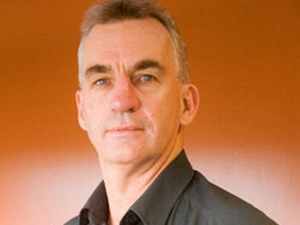Peter Roebuck, one of the most respected cricket commentators, who also wrote for Indian newspapers, committed suicide at his hotel in Cape Town where he was covering Australia's Test series against South Africa.
According to a statement released by the South African police, the 55-year-old British-born Roebuck, who captained Somerset in 1980s, took away his own life.
"This office can confirm that an incident occurred last night at about 21:15 at a hotel in Claremont where a 55-year-old British national who worked as an Australian commentator committed suicide," the statement said.
"The circumstances surrounding this incident is being conducted. An inquest docket has been opened for investigation," it said.
Roebuck was covering the Australia-South Africa series as a radio commentator for the Australian Broadcasting Corporation. He also used to write for Australia's Fairfax newspapers.
 Even though the circumstances leading to his suicide were not clear, it has been reported that he was spoken to by local police on his return to the Southern Sun Hotel Newlands on Saturday night after having his dinner outside.
Even though the circumstances leading to his suicide were not clear, it has been reported that he was spoken to by local police on his return to the Southern Sun Hotel Newlands on Saturday night after having his dinner outside.
The hotel, on its part, had also issued a statement, saying, "an incident that occurred at Southern Sun Newlands was currently under full police investigation."
Roebuck was born to two school teachers in Oxford on March 6, 1956, and was one of their six children. He studied law at Cambridge and played 335 first-class matches before deciding to make his career in writing about cricket.
In 335 first-class matches, Roebuck, a Wisden Cricketer of the Year in 1988, made 17,558 runs at 37.27, with 33 centuries. He also led an England team to defeat against Holland. Roebuck retired from top-level cricket in 1991.
No sooner the news of his death came out, tributes started to pour in.
"Peter was a wonderful writer who was the bard of summer for cricket-loving Australians. He was also an extraordinary bloke who will be sorely missed," the Herald's sport managing editor, Ian Fuge said.
Craig Norenbergs, head of the ABC's Grandstand sports programme, added, "Incredibly sad news. He was an integral part of the Grandstand commentary team and apart from being a magnificent print journalist.
"For us he could describe a game of cricket in such a way that even if you didn't like the game, you liked the way that he went about his business."
Roebuck's fellow commentator in ABC Radio, Kerry O'Keeffe described him as a "bookworm who loved the game".
"Nobody analysed the game better, nobody cut to the chase more succinctly, and nobody saw where the game was going better," O'Keeffe said
"Cricket consumed him and he played it with great distinction, and then turned to writing and commentary, and he was the No. 1 seed.
"It is the most devastating news for so many out there who knew that voice, so incisive -- the blue print for all our cricket commentary. He rang me up nearly every week for the last 10 years to talk cricket, and every time I'd put the phone down and have a deeper view of the game after the conversation," he added.
Roebuck penned several books on cricket. His diary of the 1983 season, It Never Rains established him as one of cricket's most insightful and strong voices. He also wrote an autobiography Sometimes I Forgot To Laugh.









